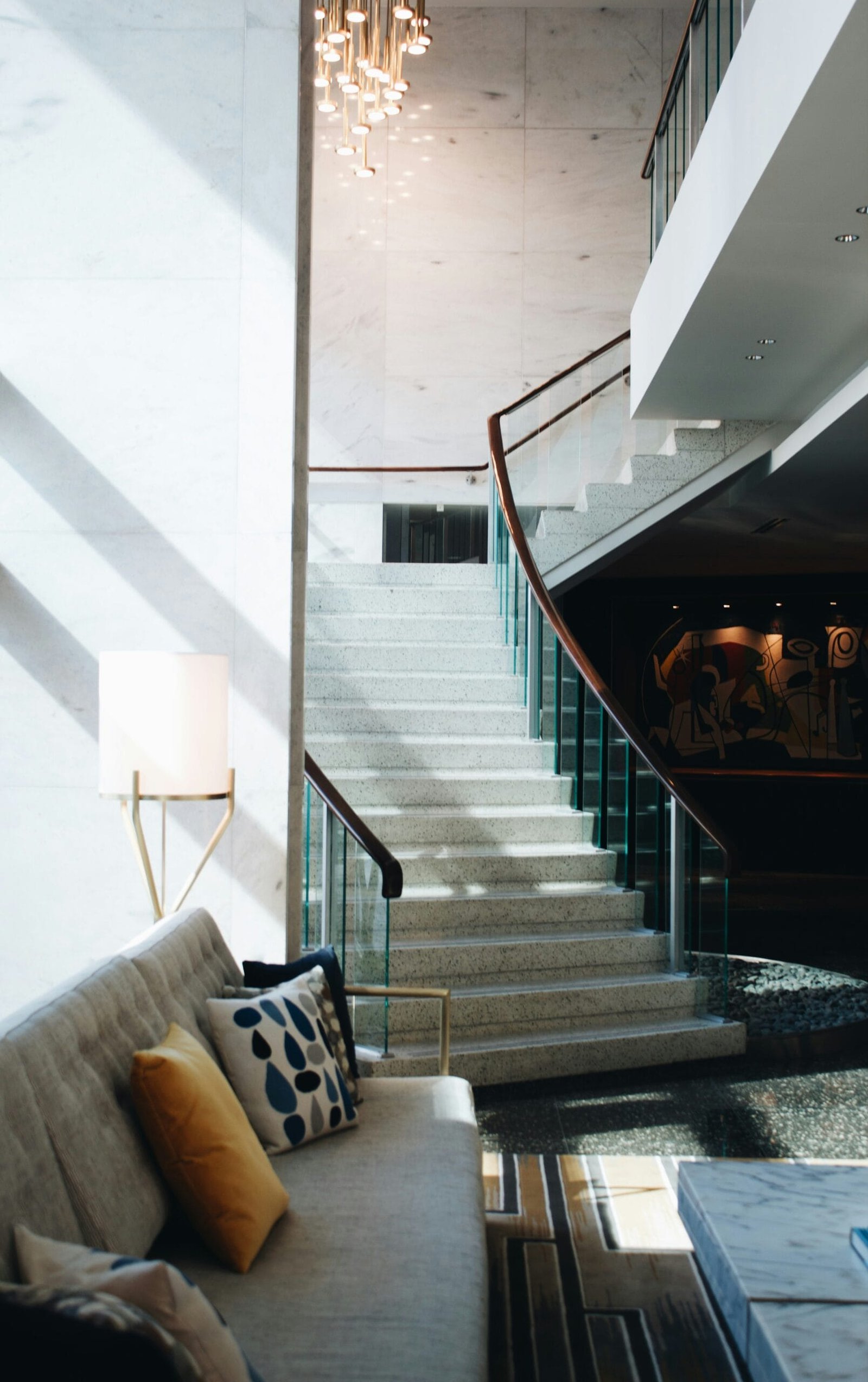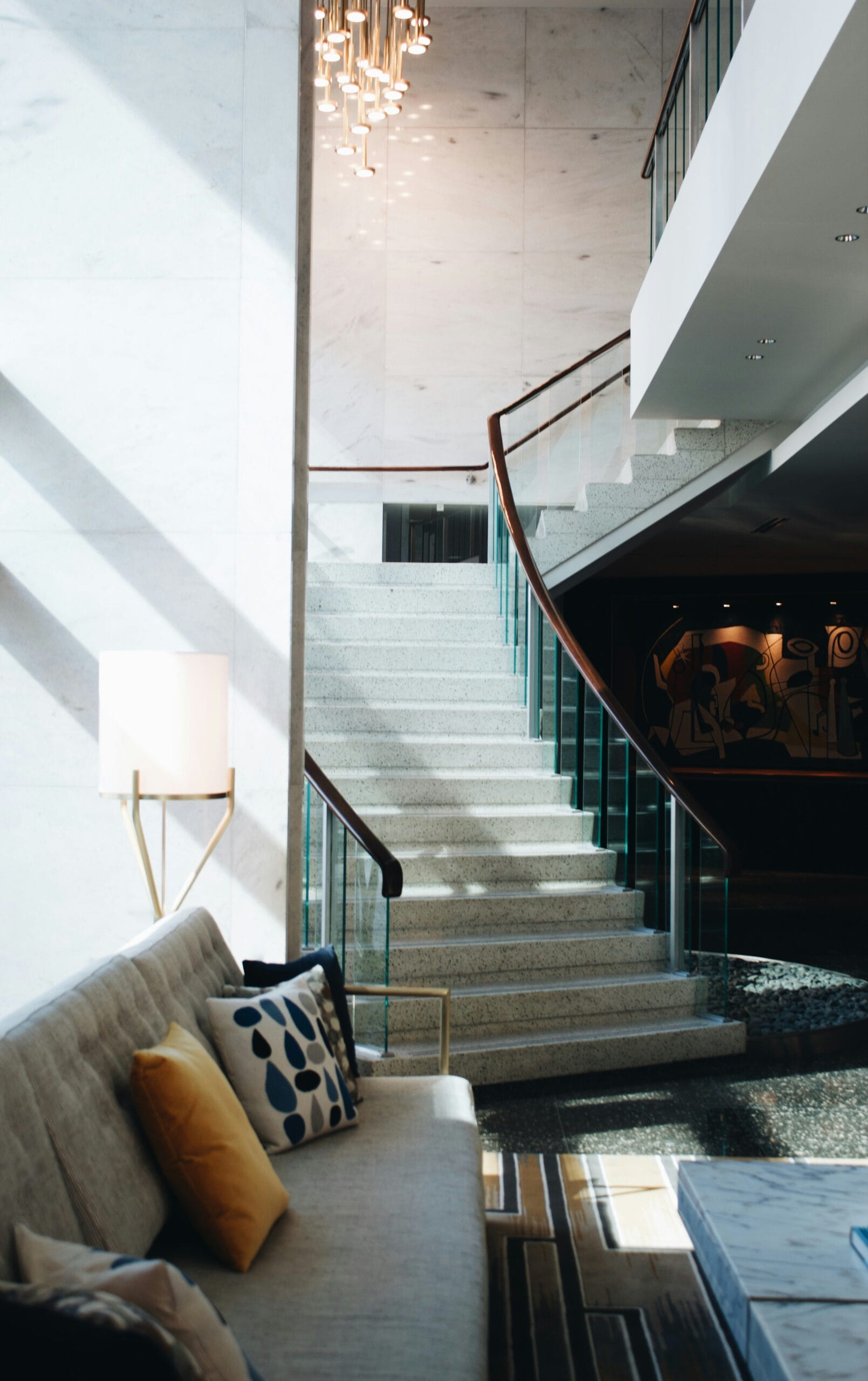
Introduction to Trump’s Hotel Portfolio
Donald Trump’s foray into the luxury hospitality sector has become a significant aspect of his public persona and business legacy. His hotel portfolio began in the late 1980s when he first ventured into real estate development, capitalizing on the burgeoning interest in upscale accommodations. Over the years, Trump expanded his reach by acquiring and building numerous hotels and resorts worldwide, each designed to reflect his brand’s opulence and exclusivity.
The launch of Trump International Hotel and Tower in New York City in 1997 marked a pivotal moment in Trump’s hospitality ambitions. This flagship property not only affirmed his entrance into the luxury hotel market but also set a new standard for both design and service. With its distinguished location and grand amenities, this establishment laid the groundwork for a series of additional Trump-branded accommodations, including properties in Chicago, Las Vegas, and international destinations such as Toronto and Dubai. Each of these projects has been characterized by an emphasis on luxury, often incorporating extravagant features like upscale dining, high-end retail space, and state-of-the-art amenities.
More informationSpirit Airlines Files for Chapter 11 Bankruptcy: An In-Depth AnalysisAs Trump’s hotel portfolio grew, so did its visibility on the global stage. The branding associated with such hotels became synonymous with luxury living, attracting high-profile clientele and further cementing his status within the hospitality industry. Nonetheless, the expansion of his hotel properties has not been without challenges. The intertwining of Trump’s personal brand with international politics and business practices has led to various controversies that have overshadowed his commercial successes and placed his hotel portfolio under scrutiny.
Overall, the evolution of Trump’s hotel portfolio not only reflects his business acumen but also encapsulates the complexities of his brand, which is equally celebrated and criticized. This duality sets the stage for a more in-depth exploration of the successes and controversies surrounding his hospitality ventures.
The Expansion of Trump’s International Properties
Donald Trump’s hotel portfolio has steadily expanded beyond the United States, capturing key markets around the globe. This international reach is characterized by flagship properties established in major cities such as London, Dubai, and Toronto. Each location not only adds to the brand’s prestige but also reflects Trump’s strategic approach to market penetration. The hotels are often situated in iconic structures, with architectural designs that resonate with the local culture, enhancing both aesthetic appeal and brand identity.
More informationTop Forbes News: Key Highlights and InsightsOne of the most notable developments was the Trump International Hotel & Tower in Toronto, which launched in 2012. This skyscraper became a symbol of luxury and opulence, incorporating high-end dining, a spa, and residential spaces. Similar strategies were employed in properties like the Trump International Hotel in Washington, D.C., which occupies the historic Old Post Office building, further underscoring the brand’s approach to embedding itself in culturally and historically significant locations.
In addition to high-profile properties, Trump’s strategy also involved partnerships with local developers and investors, fostering relationships that eased entry into complex international markets. This collaborative approach often included leveraging Trump’s personal brand; his celebrity status helped attract attention, making the brand appealing to both consumers and potential business partners. Moreover, it allowed Trump to adapt quickly to evolving market demands and local customs, ensuring relevance in diverse geographic areas.
The expansion of Trump’s hotel portfolio is noteworthy not just for its scale but also for its significance in terms of architectural design and market dynamics. The interplay between branding, luxury, and strategic partnerships has defined Trump’s international endeavors, contributing to the narrative of both success and controversy that surrounds his properties. As the landscape of global hospitality continues to evolve, the impact and implications of Trump’s international strategy will remain a topic of discussion within the industry.
More informationThe Enron Scandal: A Cautionary Tale of Corporate Greed and CollapseAnalyzing Luxury and Hospitality: Trump’s Branding Strategy
Donald Trump’s branding strategy in the luxury hospitality sector has been marked by a distinctive approach that emphasizes exclusivity and high-profile appeal. At the core of this strategy is Trump’s personal brand, which he has effectively leveraged to attract a clientele that seeks not just accommodation, but a unique experience associated with his name and reputation. By positioning himself as a mogul synonymous with success and wealth, Trump has created an aspirational brand that resonates particularly well with affluent guests.
One of the critical tactics employed in this branding approach is the use of opulent aesthetics and lavish amenities within Trump’s hotel properties. The design and services are meticulously curated to evoke a sense of elegance and indulgence, aligning with the expectations of luxury travelers. This aesthetic appeal is further amplified by strategic marketing techniques that highlight the exclusivity and prestige of staying at a Trump-branded hotel.
Moreover, Trump’s branding strategy extends to customer service, where an emphasis on personalized experiences is paramount. Staff training often includes cultivating an environment where anticipation of guest needs is prioritized, enhancing customer satisfaction and creating memorable experiences. By establishing this level of service, Trump’s hotels distinguish themselves from competitors in the industry
More informationDelta Air Lines, Inc. Net Income Trends and Financial Performance (2008-2023)In addition to aesthetics and service, strategic partnerships and collaborations with high-end brands have also played a pivotal role in reinforcing the luxury image of Trump’s hotels. Such alliances not only enhance the overall experience for guests but also lend credibility and prestige to the brand. By investing in targeted marketing campaigns that resonate with aspirational consumers, Trump has managed to carve out a niche in the competitive hospitality market, creating a unique identity for his properties.
Financial Success: Revenue and Growth Metrics
The financial performance of Trump’s hotel portfolio illustrates a complex picture of both success and challenges. Initially launched in the late 1980s, Trump’s hotel business has expanded its operations to include several high-profile establishments across the United States and internationally. The revenue generated from these properties is multifaceted, including income from room bookings, restaurant operations, event hosting, and brand licensing. Over the years, Trump’s hotels have reported considerable earnings, contributing significantly to his overall net worth.
In 2018, it was reported that the Trump Organization’s hotels generated around $400 million in revenue. Notably, the Trump International Hotel in Washington, D.C. has become a focal point for the brand, boasting a revenue increase exceeding 40% in the wake of political engagements. Furthermore, the occupancy rates of Trump’s hotels have often outperformed industry averages, with luxury establishments typically recording occupancy rates of around 75%. Such metrics highlight the profitability of the Trump brand within the competitive hospitality industry.
When compared with broader industry standards, Trump’s hotel properties have shown resilience and adaptability. For instance, despite fluctuations in the global tourism market, luxury hotels have generally maintained average daily rates (ADR) exceeding $300, placing Trump’s establishments within a lucrative segment. The growth of this portfolio is enhanced by strategic collaborations and a strong presence in key markets. A lengthy understanding of brand loyalty has allowed Trump’s hotels to capitalize on a dedicated consumer base.
Nevertheless, the financial trajectory of Trump’s hotel operations is not devoid of controversies. Factors such as political affiliations, varying reputational risks, and the impact of external economic conditions require continuous analysis. The interplay between these complex factors and financial success outlines the intricate nature of Trump’s hotel portfolio, serving as both a lucrative enterprise and a point of contention in public dialogues.
Controversies Surrounding Trump’s Hotels
Throughout Donald Trump’s tenure in both the business and political arenas, his hotel properties have been at the center of numerous controversies. Allegations of unethical business practices have frequently emerged, drawing scrutiny from various sectors including the media, the public, and watchdog organizations. Critics have questioned the transparency of Trump’s business dealings, which often blurred the lines between his private interests and public responsibilities. This has led to accusations of profit-seeking at the expense of ethical standards, particularly in regards to how hotel branding and operations may have influenced Trump’s policy decisions during his presidency.
Conflicts of interest became a significant topic of discussion during Trump’s presidency, especially as he continued to operate and expand his hotel business. The operation of hotels, such as the Trump International Hotel in Washington, D.C., raised concerns about foreign diplomats and government officials patronizing these establishments. Critics argued that this engagement could be perceived as an attempt to curry favor with the U.S. administration, thus benefiting Trump’s business while creating potential ethical dilemmas. This ongoing tie between his political role and hotel operations fostered a contentious environment where critics were quick to highlight perceived improprieties.
The public and media response to these controversies has been varied. While some have lambasted Trump for what they view as self-serving behavior, others have defended the efficacy and success of his hotel portfolio, arguing that the business acumen demonstrated in such enterprises should not be overshadowed by the controversies. Amid these debates, Trump’s hotels have also experienced moments of notable success, frequently garnering high-profile clientele and awards. It is essential to reconcile the dual narrative of achievement and controversy surrounding Trump’s hotels, illustrating the complexity accompanying the interplay of business and politics in today’s landscape.
Political Influences on Business: Conflicts of Interest
The intersection between Donald Trump’s political career and his hotel portfolio has created numerous instances of perceived conflicts of interest, raising questions about the ethical implications of his dual roles. Throughout his presidency, Trump’s hotel enterprises, particularly the Trump International Hotel in Washington D.C., became focal points of controversy. Critics often asserted that foreign dignitaries and lobbyists may have sought to curry favor by patronizing establishments owned by the president, leading to allegations that his businesses profited directly from his political position. The situation was further complicated by the Emoluments Clause of the Constitution, which prohibits federal officials from receiving gifts or payments from foreign states, raising substantial concerns about legality and propriety.
Specific incidents illustrate how Trump’s political influence impacted public perception of his hotel portfolio. For example, the decision of many international organizations, including the General Services Administration, to host events at Trump-owned properties drew scrutiny. These events perpetuated the narrative that Trump’s political power could be leveraged for personal financial gain. Furthermore, numerous state attorneys general initiated lawsuits against him, contesting these conflicts and alleging violations that compromised the integrity of public office.
The fallout from these political entanglements has significant implications for the branding and reputation of Trump’s hotel properties. Many consumers voiced their disapproval of supporting a business perceived to benefit from unethical practices, leading to calls for boycotts and diminishing trust in the Trump brand. On the corporate side, various stakeholders, including investors and partners, expressed concerns over the long-term viability of Trump’s hotels amidst ongoing scrutiny. Thus, the underlying tensions between Trump’s political actions and his business interests necessitate a careful examination of how political influences can shape both public sentiment and business operations.
Customer Experiences: Reviews and Testimonials
Customer experiences at Trump’s hotel properties vary widely, with reviews reflecting both positive impressions and critical remarks. Many guests highlight the luxurious amenities, stating that each property embodies elegance and sophistication. These hotels often feature upscale dining options, lavish decor, and prime locations. For instance, visitors to Trump’s flagship hotel in Washington, D.C., frequently commend the spacious accommodations and outstanding views of the White House, emphasizing that the experience exceeds their expectations of a luxury stay.
Service quality is another aspect frequently addressed in reviews. Several guests express admiration for the attentive staff, noting how they went out of their way to accommodate special requests and ensure a comfortable visit. Positive testimonials often feature phrases like “exceptional service” and “personalized attention,” indicating that for a significant number of patrons, the experiences at Trump’s hotels are characterized by a high standard of hospitality.
However, not all feedback is favorable. Some reviews voice concerns regarding pricing, with guests often commenting on the perception that Trump properties are on the higher end of the price spectrum. A consistent theme among negative reviews includes dissatisfaction with the overall value for money, as some visitors felt the amenities did not justify the costs associated with their stays. Additionally, there are reports of inconsistent experiences; while some guests have praised the service, others have described lapses in attention during their stay.
Testimonials also vary in tone when discussing the atmosphere of the properties. While many guests appreciate the sophisticated ambiance, others have critiqued the environment as being overly ostentatious. This dichotomy presents a complex image of Trump’s hotel portfolio, suggesting a blend of luxury and controversy in the overall guest experiences.
Future Outlook for Trump’s Hotel Business
The future of Trump’s hotel portfolio is poised at a crossroads, influenced by both enduring trends in luxury hospitality and emerging market dynamics. As we look ahead, several factors will play a significant role in shaping the trajectory of this segment of his business. Current trends indicate a growing consumer preference for personalized experiences and sustainable practices. This shift could necessitate adaptations in the brand’s operational strategies to meet the evolving demands of high-end travelers.
Moreover, the hospitality industry is witnessing a competitive landscape, with hospitality companies increasingly investing in technology to enhance customer engagement and optimize operations. Implementing advanced booking systems, guest management technologies, and personalized marketing strategies will be essential for Trump’s properties to maintain relevance. An emphasis on experiential offerings can serve as a differentiator, allowing Trump’s hotels to attract institutions of wealth while fostering loyalty among returning guests.
However, challenges persist. The global hospitality sector is still facing uncertainties stemming from economic fluctuations, geopolitical tensions, and varying travel regulations due to ongoing health concerns. Economic downturns could lead to a decrease in travel frequency among affluent clientele, which may, in turn, affect occupancy rates in Trump’s hotels. Furthermore, ongoing controversies related to Trump’s political brand has the potential to impact consumer perceptions and decisions, contributing to market volatility.
On the flip side, opportunities for growth exist within emerging markets as global travel continues to rebound. Expanding the portfolio to include luxury resorts in high-demand regions may provide additional revenue streams. Collaborations with local tourism boards and participation in luxury travel fairs could enhance brand visibility and attract new clientele. As experts suggest, embracing innovation while adapting to social trends may ultimately define the future success of Trump’s hotel business.
Conclusion: The Legacy of Trump’s Hotel Ventures
In examining the legacy of Donald Trump’s hotel ventures, it becomes evident that his influence on the luxury hospitality industry is multifaceted, marked by both notable achievements and significant controversies. On one hand, Trump’s brand succeeded in establishing a presence within high-end markets, characterized by opulent designs and upscale experiences that appealed to affluent travelers. The hotels not only symbolized luxury but also generated considerable interest due to Trump’s celebrity status and business acumen.
However, this success was often overshadowed by various controversies, including legal battles, accusations of unethical practices, and his polarizing public persona. The political climate surrounding Trump’s presidency further complicated perceptions of his brand, as his hotels became a focal point for discussions about conflicts of interest and the use of personal branding within a political framework. Consequently, while Trump’s hotel properties experienced commercial success, they also navigated a landscape filled with scrutiny and criticism.
Over time, the long-term impact of Trump’s hotel portfolio on the hospitality landscape is both tangible and intangible. From an economic standpoint, properties such as the Trump International Hotel in Washington, D.C., have illustrated the potential profitability that can arise from combining luxury with a strong personal brand. Yet, the divisive nature of Trump’s public image may have lasting implications for brand loyalty and consumer perception within the hospitality industry. Future hotel developers and operators may look to Trump’s ventures as a case study, analyzing both the effective strategies employed and the pitfalls encountered.
Ultimately, Trump’s hotel ventures represent a unique intersection of luxury hospitality and celebrity culture, defined by a complex legacy that continues to inform discussions about branding, ethics, and the evolving landscape of the hotel industry.
- Supreme Court Blocks Some Deportations, Crimea Future Mulled
- US and Iran begin second round of talks to end nuclear stand-off
- Musk Revives Plan to Visit India After Talking With Modi
- SCOTUS Blocks Deportations of Venezuelans Held in Texas, US Is Open to Recognizing Crimea
- HDFC Bank Posts Profit Growth Higher Than Analyst Expectations




